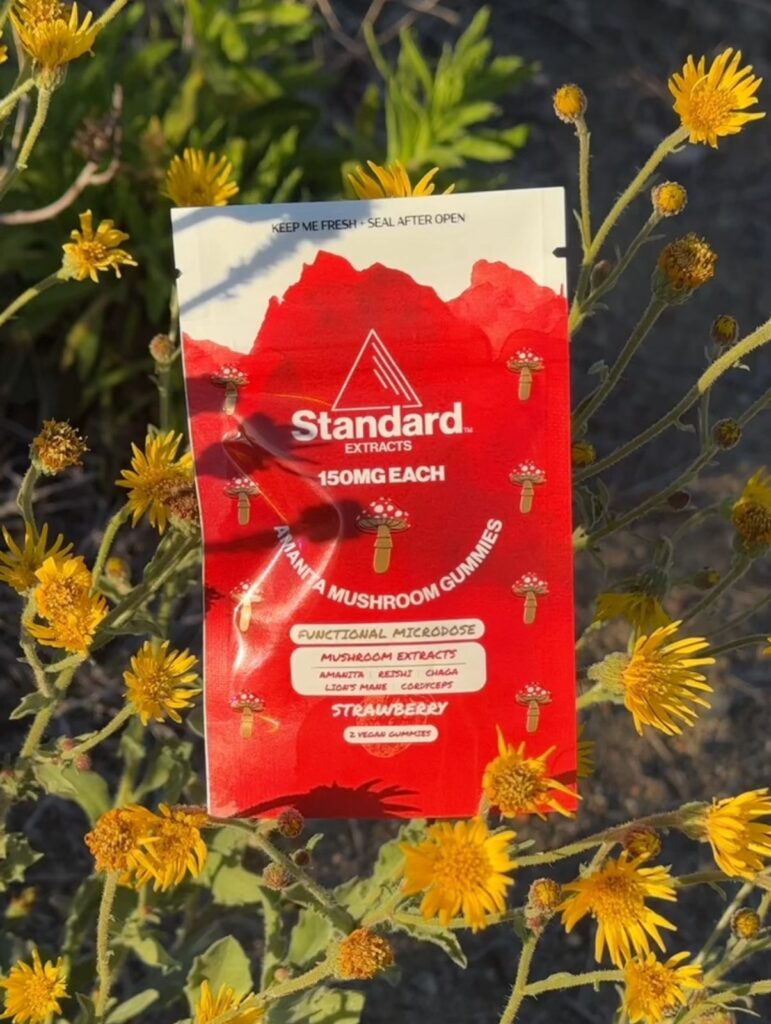

Bes THC-A Disposable Vape Pens of 2025 – Lab-Tested & Legal
Looking for the best THC-A disposable vape pen that delivers smooth hits, legal highs, and consistent potency? You’re in the
Table of Contents
For centuries, nature has held the key to our well-being. From the rainforests of the Amazon to the mountains of Asia, plants have been used to heal, nourish, and restore. But plant medicine is not just a relic of the past—it is an evolving science, bridging ancient traditions with modern wellness.
In recent years, there has been a renewed interest in natural wellness solutions. Consumers are seeking alternatives to synthetic pharmaceuticals, looking for holistic, plant-based remedies that support the body and mind. This resurgence is not a fleeting trend; it represents a deeper understanding of nature’s ability to heal and sustain us.
At StandardCBD.com, we believe in the power of botanical solutions, integrating science-backed formulations with time-honored wisdom. Join us as we explore the evolution of plant medicine and its impact on modern wellness.
Key Takeaways:

Since the dawn of civilization, plants have played a crucial role in healing and spiritual practices. The ancient Egyptians used aloe vera and myrrh for embalming and medicinal purposes, while the Chinese documented herbal medicine as early as 2,700 BCE in the Shen Nong Ben Cao Jing.
Indigenous American cultures relied on a vast knowledge of local flora, using plants like echinacea to boost immunity and willow bark for pain relief—precursors to modern aspirin. These early societies understood the synergy between nature and human health.
Herbalism evolved into a structured practice with foundational texts that continue to influence modern medicine. The Ebers Papyrus, an ancient Egyptian medical document dating back to 1550 BCE, contains over 700 plant-based remedies. In Greece, Dioscorides compiled De Materia Medica, an encyclopedia of medicinal plants used for centuries. As trade routes expanded, knowledge of herbal medicine spread across continents, enriching healing practices worldwide. European monks meticulously documented plant uses in medieval texts, preserving ancient wisdom for future generations.
Ancient healing systems, such as Ayurveda and Traditional Chinese Medicine (TCM), remain relevant today. Ayurveda, originating over 5,000 years ago in India, emphasizes balance through plant-based remedies, including turmeric for inflammation and ashwagandha for stress relief.
TCM integrates herbal formulas with acupuncture, Qi Gong, and dietary therapy. Ingredients like ginseng and reishi mushrooms continue to be valued for their adaptogenic properties, enhancing overall vitality and resilience.
These traditional approaches laid the foundation for today’s interest in plant-based wellness. By revisiting these time-tested practices, modern consumers are rediscovering the power of botanical medicine.


The advent of modern pharmaceuticals in the 19th and 20th centuries led to a decline in plant-based treatments. Synthetic drugs offered precise dosages, rapid effects, and patentable formulations, making them attractive to the medical industry.
While these advancements saved lives and improved public health, they also introduced challenges. Overuse of antibiotics led to resistance, and synthetic drugs often carried severe side effects. As a result, many began questioning whether purely pharmaceutical approaches were the best solution.
In recent decades, consumers have become more aware of the limitations of synthetic medicine. Concerns over long-term side effects, opioid dependency, and the overuse of prescription drugs have driven people back to nature for solutions.
Today, the demand for plant-based wellness products has surged. Cannabinoids like CBD are being researched for their anti-inflammatory and neuroprotective properties, while adaptogenic herbs such as rhodiola and holy basil are gaining popularity for stress management.
Rather than rejecting pharmaceuticals outright, integrative medicine aims to combine the best of both worlds. This approach encourages the use of plant-based therapies alongside conventional treatments, providing a more holistic strategy for health and wellness.
Practices like functional medicine, which analyze lifestyle factors alongside medical history, are gaining traction. Patients are encouraged to use natural remedies, such as CBD for chronic pain or medicinal mushrooms for immune support, while still benefiting from modern diagnostics and treatments.
By embracing an integrative model, we can harness the strengths of both natural and synthetic medicine, ensuring a balanced approach to health and well-being.

Scientific research has made remarkable strides in understanding the efficacy of plant medicine. Researchers have identified bioactive compounds in plants that support immune function, reduce inflammation, and promote cognitive health. For instance, cannabinoids in cannabis have shown promising results in pain management and neurological disorders, while curcumin in turmeric exhibits potent anti-inflammatory properties.
Modern medicine relies on rigorous clinical trials to validate the effectiveness of plant-based treatments. Studies on medicinal mushrooms, such as reishi and lion’s mane, have demonstrated benefits in enhancing immune response and cognitive function. Additionally, randomized controlled trials on adaptogens like ashwagandha provide evidence of their stress-reducing effects.
To ensure safety and consistency, researchers have developed standardized extracts that retain the beneficial properties of whole plants. Advances in extraction technology allow for the precise formulation of plant-based medicines, improving bioavailability and potency. Standardized botanical extracts, such as full-spectrum CBD and terpene-rich hemp oil, provide consumers with reliable and effective options for holistic wellness.
The synergy between ancient wisdom and modern science is paving the way for a new era of plant medicine. As research continues to validate the therapeutic potential of botanicals, plant-based wellness solutions are becoming more integrated into conventional healthcare practices.

The future of plant medicine is deeply intertwined with personalized healthcare. Advances in genomics and biotechnology are enabling tailored treatments based on an individual’s genetic makeup, lifestyle, and health conditions. This means that plant-based therapies, such as CBD formulations and adaptogenic blends, can be optimized for each person’s unique biochemistry, enhancing their effectiveness and minimizing side effects.
As demand for botanical remedies increases, ethical and sustainable sourcing has become a crucial consideration. Overharvesting and deforestation threaten the availability of medicinal plants, making responsible cultivation practices essential. Companies like StandardCBD.com are prioritizing sustainability by partnering with organic farms, utilizing eco-friendly extraction methods, and ensuring fair trade practices to protect both the environment and indigenous communities.
Technology is revolutionizing the way we access and utilize plant medicine. AI-driven research is accelerating the discovery of new plant compounds with therapeutic potential, while blockchain technology is being used to ensure transparency in sourcing and product authenticity. Mobile apps and wearable devices are also enabling consumers to track their responses to plant-based treatments, offering insights that help refine their wellness routines.
With these advancements, plant-based medicine is poised to become a central pillar of modern healthcare, merging traditional wisdom with cutting-edge innovation to support long-term health and wellness.
As we have explored, plant medicine has deep roots in human history and continues to evolve with scientific advancements. What was once seen as ancient wisdom is now validated by modern research, proving the effectiveness of botanical solutions for health and wellness. From traditional healing systems like Ayurveda and Traditional Chinese Medicine to cutting-edge clinical studies, the natural world offers a vast array of remedies for both common ailments and chronic conditions.
In today’s fast-paced world, more people are turning back to nature to find holistic solutions that support their well-being. The integration of plant-based medicine into conventional healthcare signifies a shift towards a more balanced and sustainable approach to healing. Whether it’s through adaptogens for stress relief, cannabinoids for pain management, or medicinal mushrooms for immune support, botanical remedies are proving to be essential tools in maintaining optimal health.
Furthermore, the ethical and sustainable sourcing of plant medicines is vital to ensuring long-term availability. By supporting responsible harvesting practices, consumers can contribute to the preservation of medicinal plants while enjoying their benefits. As technology advances, innovations such as AI-driven research and personalized medicine will further refine plant-based therapies, making them more accessible and effective than ever before.
Ultimately, embracing plant medicine is about honoring the wisdom of nature while utilizing modern science to unlock its full potential. As Mahatma Gandhi once said, “The earth provides enough to satisfy every man’s needs, but not every man’s greed.” By using nature’s resources responsibly and integrating botanical remedies into our daily lives, we can cultivate a healthier, more sustainable future for ourselves and generations to come.




Looking for the best THC-A disposable vape pen that delivers smooth hits, legal highs, and consistent potency? You’re in the


On July 4, 1776, quills scratched parchment, fireworks lit the sky, and hemp quietly held the young nation together. Today,


Meta vs. Cannabis and Psychedelics: The Digital Double Standard Legal cannabis Instagram ban: Meta—the parent company of Instagram and Facebook—claims
The products on this site are not for use by or sale to persons under the age of 21 depending on the laws of your governing state or territory.
PRODUCTS ON THIS SITE CONTAIN A VALUE OF 0.3% OR LESS Δ9-THC (OR NO MORE THAN 0.3% Δ9-THC).
THESE STATEMENTS HAVE NOT BEEN EVALUATED BY THE FOOD AND DRUG ADMINISTRATION. THIS PRODUCT IS NOT INTENDED TO DIAGNOSE, TREAT, CURE, OR PREVENT ANY DISEASE. THE DELTA-9 TETRAHYDROCANNABINOL CONTAINED IN THIS PRODUCT DOES NOT EXCEED 0.3% ON A DRY WEIGHT BASIS. DO NOT USE IF YOU ARE A PREGNANT, NURSING, SUFFERING FROM ANY MEDICAL CONDITIONS(S), OR ON MEDICATION. CONSULT YOUR HEALTHCARE PROVIDER BEFORE TAKING. KEEP OUT OF REACH OF CHILDREN AND ANIMALS. THIS PRODUCT MAY IMPAIR YOUR ABILITY TO DRIVE OR OPERATE MACHINERY.